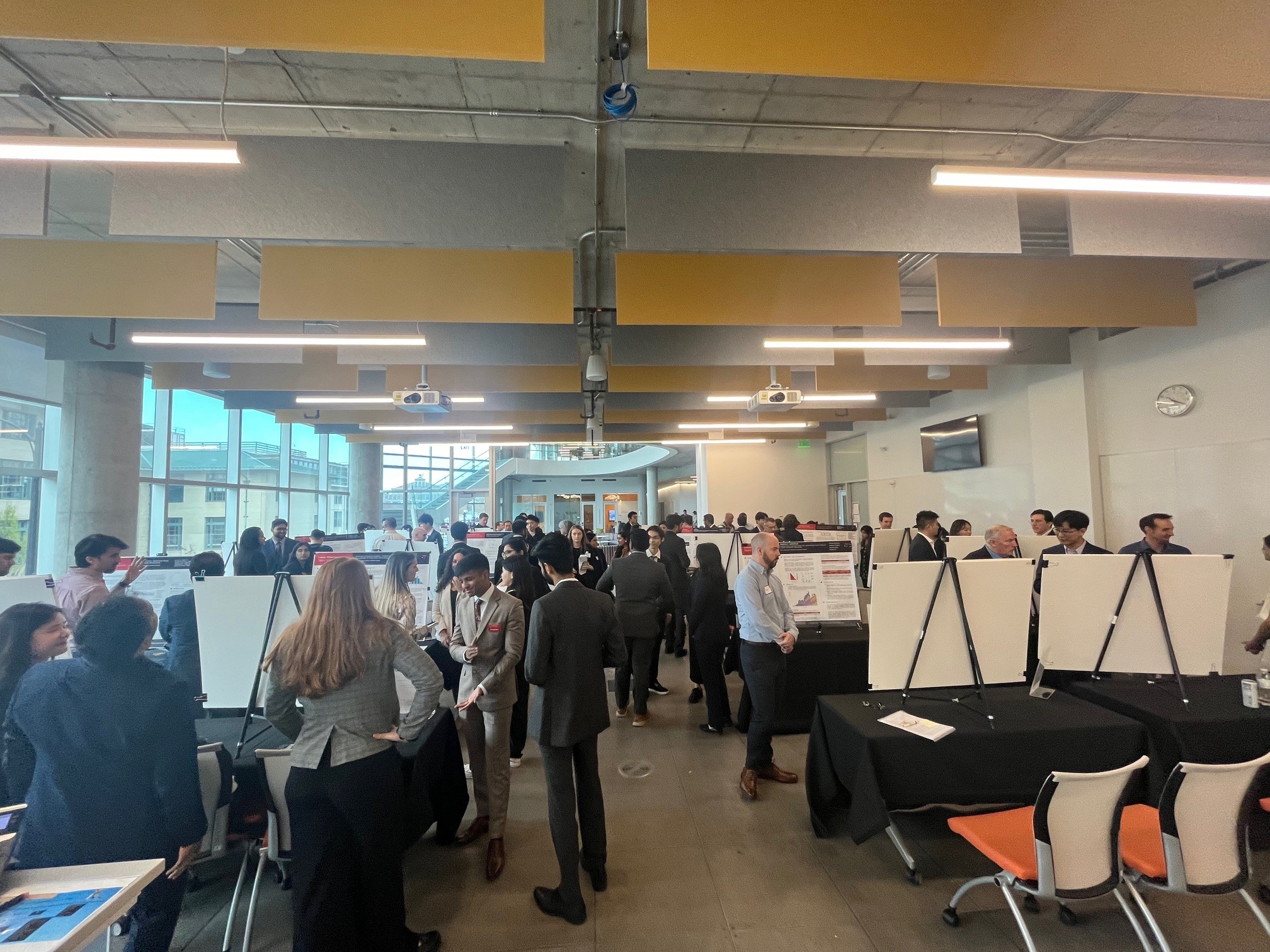
In This Section
Tepper School MSBA Capstone Project: A Journey Through Real-World Problem Solving
For students in the Tepper School of Business at Carnegie Mellon University, the Master of Science in Business Analytics (MSBA) capstone project is the culmination of an intense but transformative graduate experience. For the 2023-2024 academic year, this program offered students an unparalleled opportunity to apply their analytical prowess to real-world business challenges, fostering a unique blend of academic learning and practical application.
In January 2024, students started their capstone by meeting their industry partners — companies that provide complex business problems and participate in the educational project agreement. This kickoff meeting set the stage for a dynamic collaboration where students and industry professionals work together.
“This truly is a unique experience. Students have the opportunity to apply their craft as consultants who collaborate with various industry sponsors,” said Kevin Dietrick, director of the Tepper School MSBA and MSM programs. “It simulates the real-world and allows our students the opportunity to leverage their learning and make an impact.”
During the capstone project, MSBA students applied their learning throughout their program (including programming, statistics, and machine learning skills) to analyze vast datasets and uncover insights to develop solutions to real-world problems brought forth by the companies. The hands-on nature of the capstone project allowed students to put theory into practice, applying sophisticated analytical techniques to tackle real business issues.
Throughout the project, students benefited from the guidance of Tepper School professors and a dedicated project captain from the sponsoring company. Regular meetings and checkpoints, such as a kickoff meeting, a mid-term presentation, and a final presentation, ensured that students remained on track and received valuable feedback. This mentorship ensures the project’s success and provides professional development opportunities for students.
Lewis Matthews, a company sponsor, worked with students involved in analyzing data from thousands of real-world unconventional oil and gas wells to identify patterns and relationships between different operational inputs and their impacts on production rates. Students working on this project developed models that could predict future production based on these inputs, which has been crucial in optimizing their strategies for well management and production forecasting.
“The capstone projects have been incredibly valuable in breaking down different user workflows to understand associations between unconventional well inputs and oil and gas production,” said Matthews. “The insights gained have been instrumental in enhancing our product roadmap.”
Tepper School Data Nexus Showcases Student Innovation
On April 19, MSBA students from the full-time program gathered in the Masters Commons within the Tepper School of Business for the inaugural Data Nexus, an opportunity to showcase their work. The event began with an employer networking session followed by a welcome address from Dietrick and R. Ravi, Andris A. Zoltners Professor of Business, and professor of operations research and computer science. The purpose of the event was to create connections across student, faculty, and industry spaces at the end of the MSBA capstones.
One of the critical aspects of the capstone experience is learning to communicate complex technical findings to non-technical stakeholders. Students refine their corporate communication skills, ensuring that their insights are accessible and actionable for business leaders.
Students presented their capstone projects to showcase their work. After the presentations, the expo continued with a poster session where students further detailed their projects and discussed their work with peers and advisors. The morning concluded with a career fair expo with networking opportunities with potential employers.

The event wrapped up with an employer lunch and more interaction and feedback between students and industry professionals.
“The Capstone Data Nexus highlighted the MSBA students' readiness to tackle real-world challenges and their proficiency in translating complex data insights into actionable business strategies,” said Ganesh Mani, Distinguished Service Professor of Innovation Practice at the Tepper School, and capstone advisor. "Data-informed, human-driven experiential learning is the cornerstone of our programs," he said.
Mani recalled the GenAI hackathon at Carnegie Mellon in the fall of 2023, when students gained experience from interacting with Google professionals like Siddhartha Reddy Jonnalagadda, engineering leader, and Josh Gordon, head of machine learning developer relations. He said that experience made the capstone interactions with other corporate partners smoother.
MSBA Capstone Benefits Students and Companies
The capstone project opens doors to potential recruitment for students and fortifies connections between academia and corporations, while equipping them with essential skills. For companies, sponsoring an MSBA capstone project offers a chance to engage with top-tier talent and gain innovative solutions to complex business challenges. Companies benefit from fresh, data-driven insights, evaluate potential recruits, and maintain a pipeline with a top-tier business school.